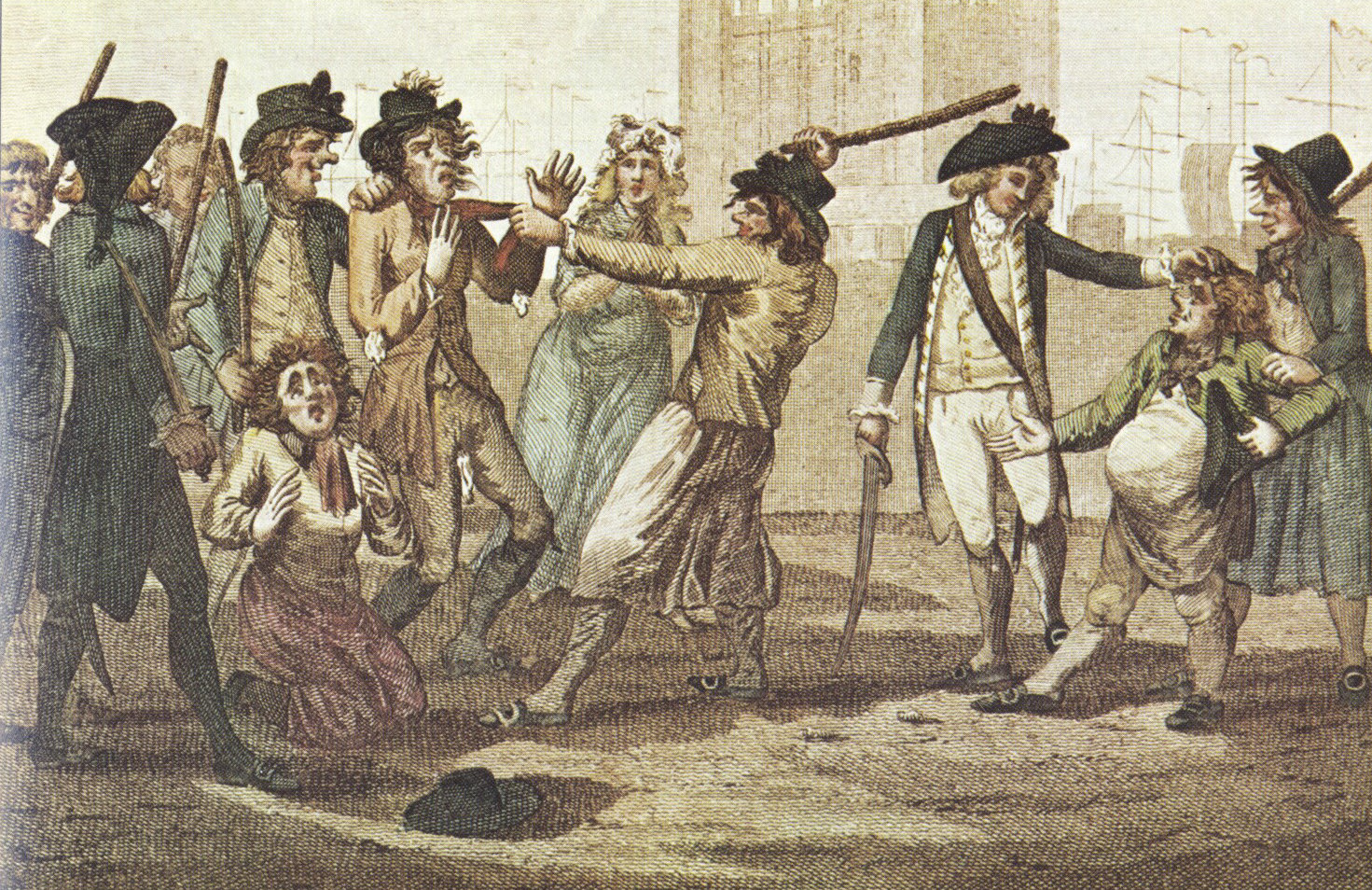Mean Monday: Strong Poetry
Cut your fucking ears off and put them in my mouth, chud fucke*s. All y’all ever talk about up in this bitch is your fucking Morning Nutritious blend Vitamin A cattle finch pomegranate quicksilver soggy sonnet dick bullshit literature.
Your indie this / Adbusters that / dead white guys with white beards and ski caps.
Fuck ski caps.
What you need is the feeling of car keys against your throat. What you need is a little yellow smiley gone bloodsoaked, with some mutton showing, with its face jiggling off.
What you need is some STRONG POETRY.
And bless your shoe licking hearts, I’m here to deliver, courtesy of the only man I’ve ever seen eat six anvils with a cock ring on: K “THE SILEM” MOHAMMAD. Witness this, his analysis of what makes a STRONG POEM, and by analysis I mean free steak:
George W. Bush, Bill Clinton, Hilary Clinton, Sarah Palin, and Barack Obama are strong poems. Al Gore, John Kerry, George H. W. Bush, and Geraldine Ferraro are weak poems.
The relationality of the strong poem should not lead one to believe that its strength is not tangible.
The strong poem fully expects to be hated by many. This increases its strength.
The weak poem is reducible to a rectangle or rhombus whereas the strong poem resembles a parallelogram, or more exactly a trapezoid or irregular quadrilateral.
Conrad Aiken’s “Morning Song of Senlin” is a weak poem. Charles Olson’s “The Lordly and Isolate Satyrs” is a strong poem. The verdict is out on Allen Tate’s “Ode to the Confederate Dead.”
Not every instance of the term “strong poem” is relevant to the definition at hand. Sometimes it is merely a convenient, informal, and largely meaningless designation, as in “Good, Susan, that’s a strong poem compared to your earlier work.”
The strong poem carries with it the undercurrent of a threat in the guise of robust confidence. It is always on the verge of violating something.
“Strong,” but not yet stale, sweat.
And, yes, there’s more. You thought that was it? It? You don’t even know half of it! That’s because it is a half of shit, and half of shit is your shit (oh! what!) and half of your shit is the shit I just shit on your shit. Bitch. That’s because you’re a–wait, no, you’re not a pussy, not even that, no, you’re a bunny cunt, you’re a blowjob in pajamas. Go eat a fucking Mounds bar, girl. That’s what girls do. They just sit around eating Mounds bars and–
transformativitinessability
Poet Julia Cohen has been asking people for advice over at her blog, On the Messier Side of Neat:
>>I’m reading Everybody’s Autonomy by Juliana Spahr. I’m on page 14 so I have a ways to go. What I would really appreciate is if you, in the comment box, let me know which theory or philosophy book was the most transformative for you. What has most deeply impacted your way of thinking/writing? I will then read it.
Whoever recommends the book that then impacts me the most will receive a prize greater than or equal to one pound of elk meat. Ok, greater.<<
Here’s some of what’s come in so far:
Our own Mike Young got first comment, with >>The work of Emmanuel Levinas, specifically Totality and Infinity.<<
A guy named Gary McDowell suggested Gaston Bachelard’s Poetics of Space, along with an apology that it was such a cliche choice. No shame in a crowd, Gary! I’ve read that book too.
I went on this long-winded spiel about the nature of the question, then finally got around to naming Zizek’s Puppet and the Dwarf.
Mathias Svalina of Octopus Books (and of going steady with Julia Cohen) fame, picked The Giving Tree, but then Julia said her mom thinks that book is sexist, and pointedly thanked “everyone else.” (Hmm. Did I just start an “internet rumor?” Can I classify this post under “web hype” now?)
Kitchen Press (aka Justin Marks) weighed in with this: >> Why Did I Ever, by Mary Robison. It’s marketed as a novel, i guess because she calls herself a novelist, but one could certainly argue for it as a prose poem. or lyric novel. or some mixed genre something or other.<<
And other people wrote other things too. Maybe YOU will win the elk meat?

This could be your new life.
Department of New Stuff: Vehicular, a zine from The Press Gang

A press gang.

Qin Gang's Press Conference
So last Tuesday I read some poems at an event put on by Boog City (site seems out of date) which featured four indie presses: X-ing Books (my guys), Open 24 Hours Press (no site I could find), Farfalla Press, and The Press Gang. Well, as you might imagine, everybody had the best time ever. I ate some cheese, and Anne Waldman did this terrifying thing where she shouts what might be Wikipedia entry about manatees over a boombox soundtrack of something that sounds like the music on the first Ani Difranco/Utah Philips collaboration. (I’ve actually seen her do this twice now, so I guess it’s like a thing.) Anyway, my favorite thing was The Press Gang, who put up an impossibly emo young poet named Evan Kennedy, who compulsively kicked the floor with his boot while he read. After the reading, one of the editors high-fived m and then gave me a copy of issue #1 of their ‘zine, vehicular. Then they wanted to come out drinking with us and I wanted them to come but then someone I was with said where we were going wasn’t really that kind of place, and her brother was in town visiting–all of which was true–so we didn’t get to hang out. Next time, next time.
Anyway, the zine, which is photocopied unbound pages tied up with a string, is a split between two writers: J.D. Mitchell-Lumsden and Evan Kennedy. JDM-L makes weird blocks of prose and presents things that look like they are diagrams, or used to be, or maybe will be soon. Kennedy, writing as “Evan Abandoned,” presents a sequence (?) of Bowie/club-kid inspired poems. Despite one poem actually containing the refrain “I am as lonely as a poetry reading,” it’s really interesting work, and I think he’s onto something. Evan’s section of vehicular is entitled “All the Young Dudes,” and here’s a poem from it, which I typed up just for you (I tried to approximate his spacing, but it’s admittedly a best-guess sort of job).
“In a Season of Switchblades”
for Saint Augustine
After an awkward phase, our bodies
became a pleasure to look at;
we got the hint that things were starting
to fill out.
We joined the Wreckers and
received matching coats. We bred
a subtle trouble through the school halls.
Even a little danger loved was death won.
There were the bloody-nosed at the video arcade
and haircuts in the bowling alley bathroom.
On one wall a portrait of Cabeza de Vaca,
another, all the animals he brought.
There were Swishers to smoke and
showers to get the stink off. The Cineplex
was brimming with unheard-of poetries.
The heroes were attributed human sins,
but not ours.
There was the tree we shook
after skinny dipping; pears fell into
mud that was up to our knees. Two eggs
dropped as well, and we palmed them.
+
BONUS: REFERENCE GUIDE TO EVAN “ABANDONED” KENNEDY’S “IN A SEASON OF SWITCHBLADES.”

Saint Augustine

Saint Augustine, FLA

The chorus of "Saint Augustine" by moe. goes "God is light, light is good, yeah God is good."
WE WANT YOU: To Help Name Rachel Sherman’s Firstborn Child!

So yesterday I had lunch with Rachel Sherman (author of The First Hurt), who also teaches at Rutgers. She’s wildly pregnant, and told me she’s due in about 7 weeks. She mentioned that the baby is a girl, and I asked if she and her husband had a name picked out. She said there were several in the running, but nothing was settled. I suggested that maybe the best way to come to a decision was through an internet contest. And so, after I agreed to her single and only stipulation–which is that the results are non-binding–she basically told me to go knock myself out.
So it’s now up to YOU to help NAME RACHEL SHERMAN’S BABY. The rules of the game are simple: post your nomination for the baby’s name in the comments section of this post. Eventually, Rachel will pick a winner, and also explain what type of winner you are: (1) “winner” in the sense of “yeah I might totally call my kid that” or (2) “winner” in the sense of “that was really funny slash original slash offensive of you, but seriously dude.” (UPDATE: Rachel says the winner also gets a signed copy of The First Hurt.)
To help get you in the right spirit, here’s a picture of a tiny adorable primate clutching a teddy bear.

Zachary, I’m sorry…

I found a copy of Zachary Schomburg‘s The Man Suit at a used bookstore a couple of weeks ago.
First, this should be evidence that Seattle has really amazing used book stores. The copy was originally purchased at Open Books, an all-poetry bookstore. (How Open Books manages to stay in business selling nothing but poetry to an increasingly disinterested-in-poetry audience* remains a mystery to me, but I love that they exist.) I tend to walk by the poetry sections of used bookstores because, really, I have The Spoon River Anthology already and don’t need another copy. But this little store—Ophelia’s Books in Fremont—had a book I’ve been thinking of purchasing anyway.
Second, who the heck sold The Man Suit? It’s really good—full of surreal images and dream logic
Here’s an image that stuck with me: a voicebox—removed from its throat—still full of words. A person can pick up said word-filled voicebox, and blow through it to hear what was left unsaid when the voicebox belonged to a body.
I am fairly certain that some time in the future, I will forget that I read about this voicebox in The Man Suit by Zachary Schomburg, and I will use it in a story, thinking I came up with it. I’m sorry, Zachary. Eventually I will remember, and then I will feel bad for stealing from you.
(This has happened before. I have an as-yet-unpublished story that features a character named Boy. I stole this from a Peter Markus piece I read on elimae. I thought it had been my idea. There are other examples.)
(Actually, I wonder if this post will serve to stop this from happening. If it will immunize me from the Schomburg voicebox image that could some day infect my writing.)
Is this a bad thing? I’m not sure it is a great crime for artists to steal from one another in this way. Art bubbles up from a subconscious place, and it shouldn’t shock anyone that the things that bubble up are dropped into the stew of the subconscious mind by other artists.
Are you familiar with the concept of sperm trains? Some animals create sperm cells that hook themselves onto one another. They drag one another toward their goal. And move faster. The voicebox, I’m pretty sure, will one day find another idea hooking itself onto it, and they will both swim out onto a page of my writing.
(There’s an image for you: my pages of fiction are covered in sperm.)
Because I feel bad that I will steal from you, Mr. Schomburg, I would like to at least pay you the royalty you should’ve gotten for the book I purchased used. If you would like, I don’t know, five dollars, you should write to me at giantblinditems at gmail dot com.
Please use the comments section of this post to cop to things you have stolen.
‘Soft Surrealism’
Johannes Gorannson’s blog Exoskeleton remains one of my favorites, a constant outsource of way-in-from-way-out spittle and barb on everything from piggery to Lynch to babble camps to etc. Even if sometimes it hits the head as heady, you can always count on Johannes to say it like no one else, and say it well.
For those of interest, there has just been posted a manifesto by Johannes and Joyelle McSweeney on the matter of ‘soft surrealism,’ which is spoken, if slightly in tongues, in a way that only they can: somehow combining the Project Pat with the Deleuze and all that leak.
Here’s one of the nodes I liked to like:
9. We think Ron’s got it wrong. The global epidemic of Surrealism derives not from its manifestos and pronouncements, the imperialist/ecumenical instincts of Breton, but because it has traveled with émigrés across borders and oceans, in a flux of disheveled genders, nationalities, and media, in the second-rate garments of sleep, dream, and game.
Yes. I am glad to see Breton for once not getting creditized out of the ass for something he barely seemed to stick a tongue on. I’ve had urinal cakes in my meatloaf for like 150000 weeks.
Johannes’s attitude reminds me of how Nation of Ulysses used to come off: “the serious unserious, the reverent irrevent” etc…
Ian Svenonious used to have some shit to say:
Now he just works for Vice magazine. Pleh.
talented person makes things that are swell

I just read this post on io9 about Thomas Allen, who is an apparently awesome photographer (though that doesn’t really do justice to the amount of craft that goes into making the things he ultimately photographs) about whom I knew nothing until just now.

io9 has a small gallery of his work attached to their post, and there’s another (where I’ve been pinching these images from) at the Aperture Foundation page for for his book, Uncovered.
Oh and he has a blog too.

Are you Henry Mansfield
I owe Monkeybicycle a lot. My first ever print publication was with them. One of my first online pieces appeared on their site. And for a brief time, they turned editing duties for their site to me—probably long before I was really ready to do it, too.
The last thing published before I took over (the last thing edited by Shya Scanlon) was this piece:
America Fell In Love with the Explosions Technician
Did you read it? Go read it. It rules. It seriously rules. It makes my top ten best fucking things published online list. (As does the previously linked to Thomas Game Boy thing Gene wrote.)
At some point during my tenure as the editor, I wrote to this person, this “Henry Mansfield” and attempted to solicit more work. I never heard back from him. I’ve never seen anything else by him online.
So I figure its a pseudonym. But I can’t be 100% sure.
Dear reader, are you Henry Mansfield? Say hello! Write to me at giantblinditems at gmail dot com.
Dear reader, find Henry Mansfield! Dear reader, let’s make a saint of Henry Mansfield.
Dear reader, write the hagiography of Henry Mansfield in the comments. A prize for my favorite.
this morning in breathless, endless, pointless Tao Lin coverage

If you don’t already know from having seen it on his own blog (where I found it), you might or might not be interested to know that a person named P.H. Madore has posted something he calls 8,794 Rambling Words On Tao Lin. I don’t know what it is about Tao that somehow, simply by existing in the world, he is able to bring out the stupid in otherwise reasonable people–or else to bring out the stupid people into otherwise reasonable discourse.
I’m always in the tank for Tao’s writing, and I’m usually in support of whatever bizarre culture-jam or e-bay auction or stunt he’s got going on, but man–his super-fans are just some of the most irritating fucking people you’ll ever encounter.
As soon as I saw that Part One of this post was entitled “Half-Assed Introductory Words,” I started yawning. I can’t stand it when people start out by telling me what a piece of crap the thing I’m about to read is. Why do so many writers do this?

SELF-FLAGELLATION #1: YOUR PERFORMATIVE SELF-ABUSE REVEALS ITSELF AS A CRY FOR ATTENTION AND PITY.
I thought to myself, who is P.H. Madore? So I skipped the next 8790 words, and went down to his bio note, which reads >>P. H. Madore was once a finalist in Riot Lit’s novel contest. That novel sucked, but you can read it and other stuff through his website, freemadore.<< More self-abuse. How charming. Also, I’m sure Riot Lit (whatever that is) will be thrilled to know that the novel they almost published “sucked,” though in all fairness to Madore, it probably did, which in turn begs the question: why would anyone want to read it? It would be easy–perhaps, too easy–to read this bio solely through the lens of S-F#1, pictured above. But friends, before you jump to hasty conclusions, consider another option:

SELF-FLAGELLATION #2: YOU ARE ACTUALLY VERY SERIOUS ABOUT THIS--AND GUESS WHAT? I STILL DON'T CARE.
Anyway, the rest of the post is a lot of transcribed g-chats, emails between Madore and Tao, categorically idiotic assertions such as “Tao Lin is a better artist than Andy Warhol,” and a section on a dozen writers who Madore considers Tao Lin “followers.” “[M]ight be you can count me among them,” he writes. Good company! A few lines down, he tells the followers not to lose heart, because “[a]rticles like this will be written about each of them one day…” Don’t worry Gene Morgan, everyone grows at their own special pace! Keep drinking milk! You too, Brandon Scott Gorrell!
Was the young William T. Vollmann a Tao Lin follower?
If I had to identify one truly, unimpeachably excellent thing about this post, it would be that somewhere in the middle of it there’s a link to this picture:

Don’t worry, Ellen Kennedy! Even though P.H. Madore ranks you with the other followers, he knows that you’ve got your “own things going on.”
MLP: 3 Reviews
I got the second batch of Mud Luscious Press chapbooks today, and read them excitedly. J.A. Tyler (editor) chose bright neon colors which, for me, reflected a certain kind of synthetic violence I found to be a unifying factor.

Rat Beast by Nick Antosca
[Spoil alert] This piece starts off fairly ‘normal,’ a first person narrative about a dour kid turned teenager having trouble at school. A Huxleyian counselor enters with treatment alternatives, the final of which takes a rather grotesque Kafkian turn (two name-drops, sorry), towards the eponymous animal. The ending is even more evocative due to the well-handled restraint in the writing.

Patience by Brandi Wells
A man carves the female reproductive system in the rind of an orange, creating a fetus in place of the fruit. At one point he “carves a fist beside the labia,” an allusion (in my sick mind at least) to fisting, or at least the manual ways women’s bodies are altered by patriarchal ideals (I’m so gay). Wells describes fallopian tubes wrapping around blades of glass and ants eating them; a kind of abortion detritus. J.A. Tyler plays well with the physical page break, embracing the most precious (bad word!) moment of the story.

In the Rape Year of the Ghetto Toddler the Houses Will Awaken by Blake Butler
To try to understand the title is to try to understand Butler’s writing, and I mean that in a good way. Butler is concerned with ideas, themes, and language–and how those three things cook down into meaning. He doesn’t explain it; but describes it, and he trusts the reader and himself enough to know that, through the thick confusion and minor nausea, his writing will be intuitively understood, and more importantly, viscerally manifested. Herein, rabbits live in bacon-greased arm sockets, wallpaper patterns dent cheeks, and a man is on vacation his whole life. Unabashed controlled chaos. Through the surrealism, I always get the feeling that Butler is talking about something less metaphysical, and more actual: an America today that might cause one to dry heave.
On a formal note, J.A. Tyler is marking MLP chapbooks with a signature ampersand in place of all ‘and.’
& it rocks.


